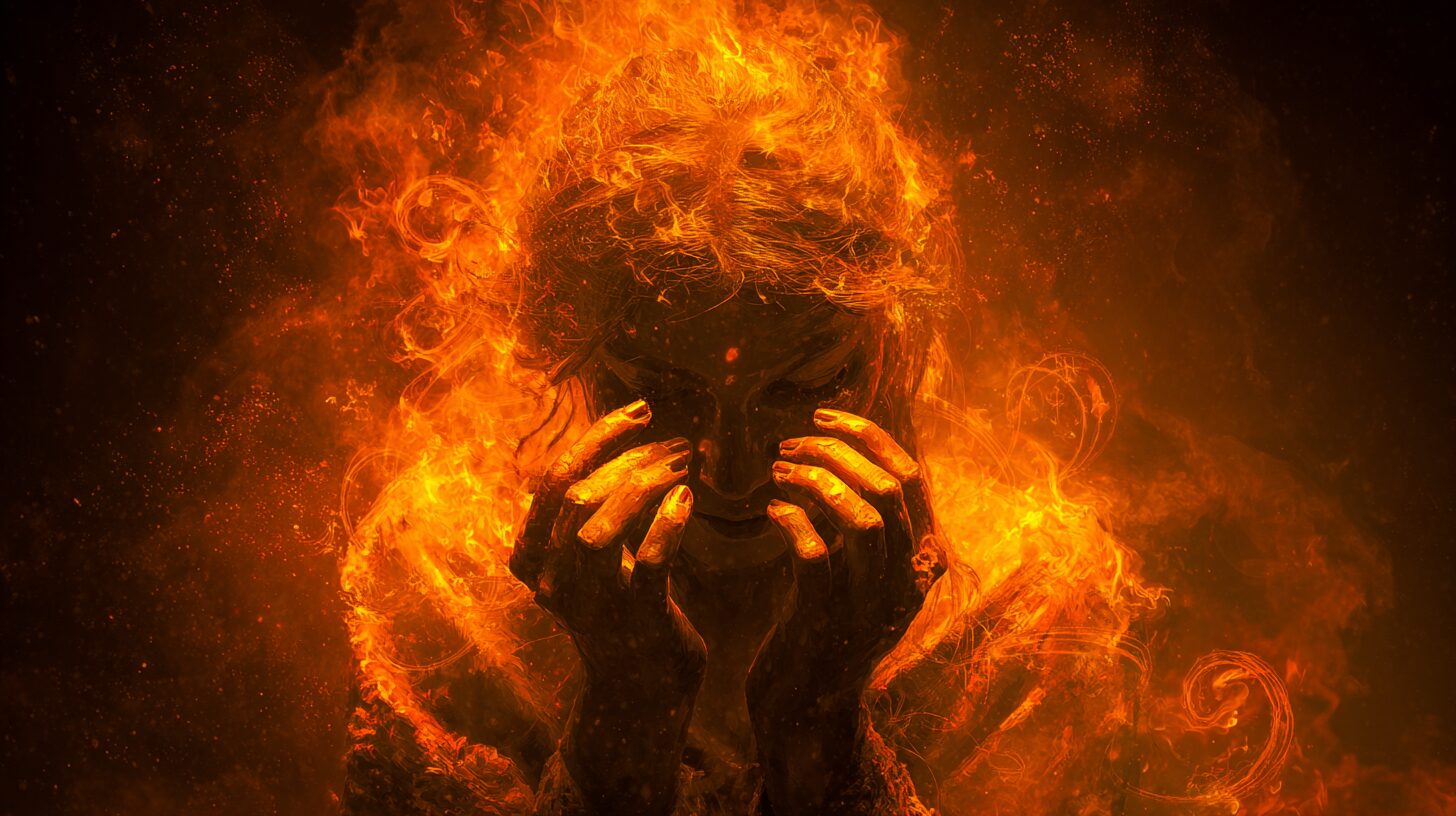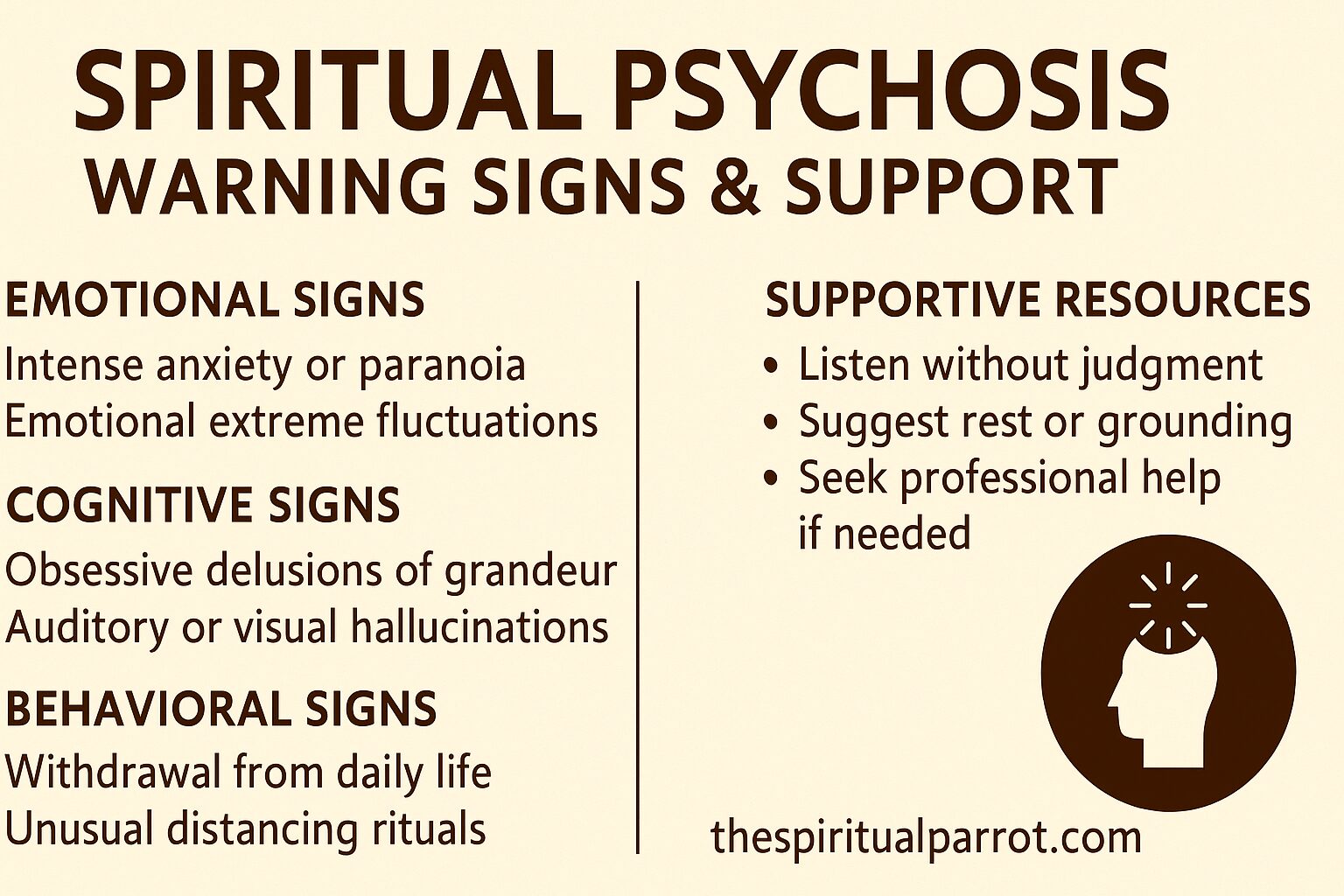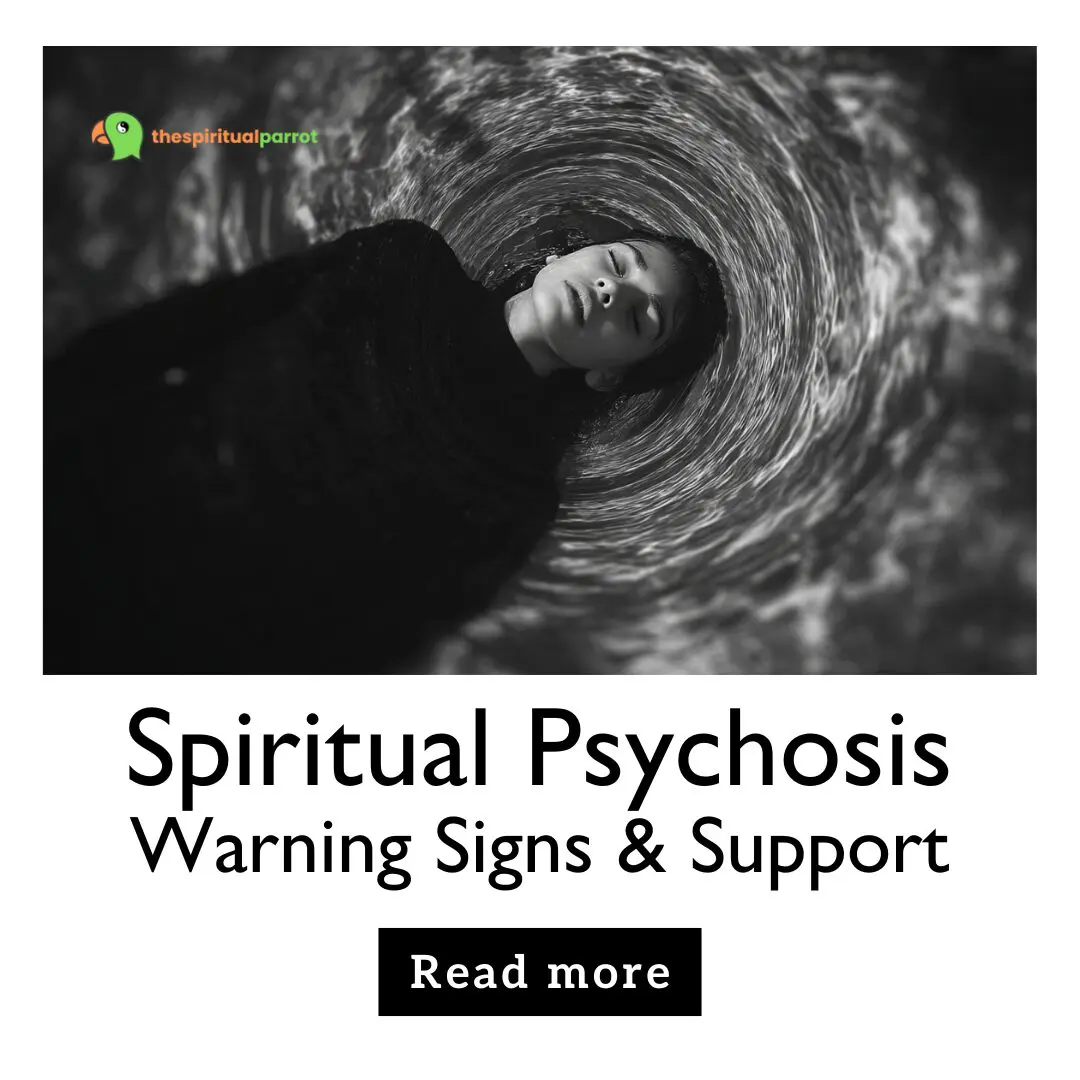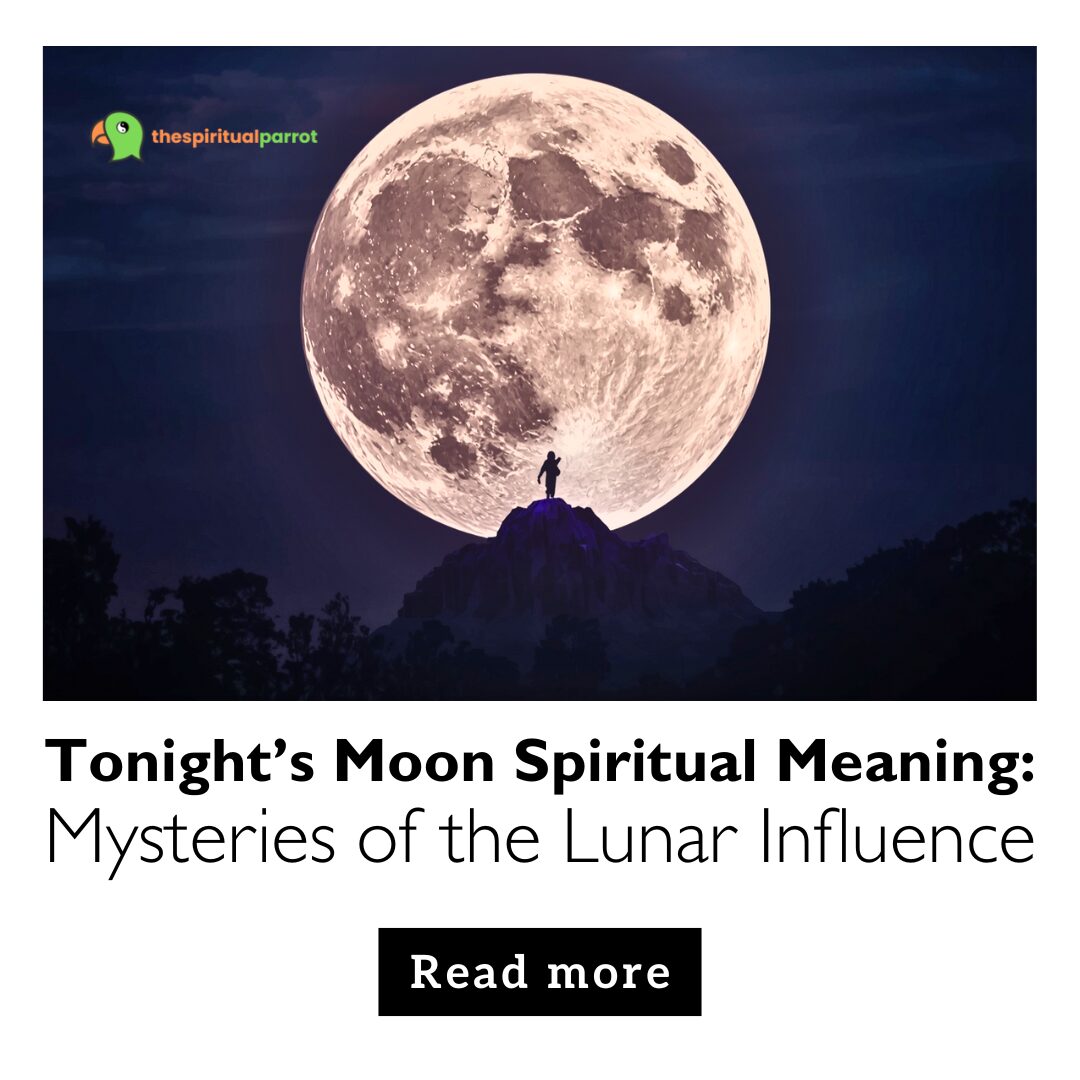Spiritual psychosis is one of those shadow topics rarely discussed in wellness spaces — yet it’s becoming increasingly relevant as more people pursue awakening without proper grounding. With the rise in breathwork, plant medicine, and energy healing, we’re also seeing more individuals struggle with the fine line between higher consciousness and psychological overwhelm.
This isn’t about pathologizing spiritual growth. It’s about understanding when profound experiences become too much for the nervous system to hold — and what to do if that happens. Whether you’re navigating your own intense awakening or supporting someone who seems “lost in the ethers,” this guide will help you recognize warning signs and support integration with compassion and clarity.
What Is Spiritual Psychosis?
Spiritual psychosis refers to a state where spiritual experiences become so intense or ungrounded that they lead to disconnection from reality. Unlike a peaceful or integrated awakening, spiritual psychosis feels chaotic — like an inner world spinning too fast for the outer world to keep up.
It’s not the occasional high after meditation or the emotional release after breathwork. It’s when the mystical starts to morph into confusion, fear, or even delusion. People experiencing this may feel chosen, hear divine messages, or believe they must abandon all earthly ties for a higher calling — often losing touch with their physical, emotional, or relational health in the process.
This state is not just a spiritual exaggeration. In transpersonal psychology and spiritual emergency models, it’s recognized as a fragile reality that arises when the psyche isn’t ready to hold a flood of energetic or mystical input. The person may not be “mentally ill” in the conventional sense, but they’re also not grounded enough to integrate what they’re experiencing.
Sometimes, what looks like enlightenment is actually overload. And knowing the difference is the first step to offering support — or seeking it.
Common Triggers of Spiritual Psychosis
Spiritual psychosis often doesn’t arise out of nowhere. It’s usually the result of too much energetic input, too fast — without enough grounding to handle it. While the symptoms may seem sudden, the root causes often build over time, especially in seekers who are diving deep without the right support.

Unprocessed Trauma Triggered by Spiritual Work
Many who turn to spirituality do so in search of healing. But when practices like breathwork, meditation, or shadow work activate deep emotional wounds that haven’t been fully processed, it can destabilize the psyche. Instead of healing, these unresolved memories rise in overwhelming waves, fueling the chaos of spiritual psychosis.
Unsafe Use of Psychedelics or Plant Medicine
Ayahuasca, mushrooms, LSD — they’re all becoming more common in spiritual circles. But without proper set, setting, and integration, they can open psychic doors too wide. What should be a tool for insight turns into a flood of information that the mind isn’t ready to understand or manage.
Overconsumption of Spiritual Content
Podcasts, YouTube rabbit holes, astrology memes — when people constantly take in spiritual material without time to reflect or embody what they learn, it builds a kind of mental clutter. That overload can lead to confusion, obsession, and in some cases, distorted perceptions of reality.
Intense Practices Without Guidance
Practices like kundalini awakening or deep silence retreats can bring immense transformation — but also spiritual psychosis if not done carefully. Without a teacher, elder, or mentor to check in with, it’s easy to misinterpret what’s happening and spiral inward in unhealthy ways.
Isolation in the Spiritual Journey
Loneliness can make any mental health challenge worse. When someone’s spiritual path becomes solitary — either by choice or because others don’t “understand” them — they can become untethered. Without human mirrors, they may start relying solely on their inner world, which can distort over time.
Warning Signs to Watch Out For
Spiritual psychosis often begins subtly, which is why it’s crucial to notice early symptoms before they deepen into a full crisis. These signs can be emotional, cognitive, or behavioral — and while having one or two doesn’t guarantee a psychotic episode, a cluster of them should not be ignored. Here are the key red flags to recognize:
Emotional Warning Signs of Spiritual Psychosis
You might notice sudden emotional swings that feel disproportionate to the moment. Heightened anxiety, spiritual paranoia (like feeling under psychic attack), or a constant state of fear masked as “downloads” or “intuitive hits” can signal a nervous system on edge. These aren’t just mood changes — they feel existential, like your safety is constantly threatened by unseen forces.
Cognitive Symptoms: Confusion vs. Clairvoyance
Obsessing over being “chosen,” believing oneself to be a reincarnated prophet, or interpreting every small event as a divine sign are common cognitive distortions. While spiritual insight often involves symbolism, psychosis blurs the line between metaphor and literal truth. When someone starts hearing voices framed as “spirit guides” or believes they’re being directed by divine forces in every decision, it’s time to pause and reassess.
Behavioral Red Flags in Daily Life
Sudden withdrawal from work, relationships, or social routines in the name of “spiritual purification” can be a red flag. If someone refuses to eat certain foods, avoids conversation, or isolates entirely for energetic reasons, it may indicate that their spiritual world is overpowering their real one. These shifts are usually justified through rigid beliefs that seem beyond reason or questioning.
Difference Between Spiritual Awakening and Spiritual Psychosis
Many people confuse spiritual awakening with spiritual psychosis, especially when both involve deep emotional shifts, visions, or a sense of expanded awareness. But while they can look similar on the surface, they feel radically different in practice. Understanding these differences can help prevent spiritual seekers from spiraling into unsafe territory.
Awakening Grounds You — Psychosis Overwhelms You
A spiritual awakening often brings peace, clarity, and connection. Even when intense, it leaves you more rooted in your body and the present moment. On the other hand, spiritual psychosis disconnects you from daily reality, leading to fear, chaos, or pressure to act based on symbolic or imagined information.
Awakening Integrates — Psychosis Fragments
When you awaken, you begin integrating past wounds, expanding compassion, and understanding your place in the universe. Spiritual psychosis fragments your sense of self — you may feel like you’re splitting between realities, identities, or lifetimes, with no sense of control or closure.
Awakening Strengthens Connection — Psychosis Breeds Isolation
Healthy awakening fosters deeper relationships and empathy. You want to share, heal, and help others. Psychosis, however, often convinces you that others “don’t understand,” pushing you into isolation, secrecy, or superiority — all under the guise of being spiritually advanced.
Quick Comparison Table: Awakening vs. Psychosis
| Aspect | Spiritual Awakening | Spiritual Psychosis |
|---|---|---|
| Emotional Impact | Calm clarity | Anxiety or paranoia |
| Reality Check | Aware and grounded | Detached or delusional |
| Social Behavior | Empathetic connection | Withdrawal or isolation |
| Thinking | Symbolic and balanced | Obsessive and literal |
| Energy State | Integrative flow | Overstimulation |
How to Support Someone Going Through Spiritual Psychosis
If someone close to you is showing signs of spiritual psychosis, your role is not to diagnose or fix them — it’s to help them feel safe and seen. These moments are delicate. Compassion, boundaries, and informed action can make all the difference.
Do’s: What Helps
- Listen without judgment – Even if their experiences sound strange, avoid ridicule or disbelief. Let them speak.
- Stay grounded yourself – Your energy sets the tone. Speak calmly, move slowly, and hold space.
- Gently guide them back to the present – Invite awareness to the room, their breath, their body. Ask questions like, “Can you feel your feet right now?”
- Suggest rest and nourishment – Exhaustion can intensify symptoms. Encourage water, sleep, food.
Don’ts: What to Avoid
- Don’t mock or invalidate them – Dismissing what they’re experiencing can deepen their sense of isolation or mistrust.
- Don’t argue or escalate – If they’re locked in a delusion, confrontation may worsen panic or paranoia.
- Don’t push for solutions too soon – They may not be ready to hear advice or take action.
When to Seek Professional Help
- If they are unable to care for themselves
- If there’s risk of harm to self or others
- If communication breaks down entirely
Some professionals and centers specialize in spiritual crisis or emergence, such as:
- The Spiritual Emergence Network
- The Grof Foundation (for transpersonal therapy resources)
- Therapists trained in Jungian or transpersonal psychology
These aren’t just mental health issues — they’re spiritual health crises. And they require both emotional care and practical support.
Practices That Help Reground
When someone is navigating the intense overwhelm of spiritual psychosis, the goal isn’t to “snap out of it” — it’s to reconnect with the body and the now. Grounding practices create structure for the nervous system, helping the person return to clarity without resistance or fear.
1. Gentle Mindfulness
Skip the intense meditations. Try body scans, focusing on one part at a time — feet, legs, hands — to slowly return awareness to the physical self.
2. Nature Without Interpretation
A walk in the park, barefoot time on the grass, or sitting under a tree — without “reading signs” or searching for omens — can calm overstimulated spiritual circuitry.
3. Movement Over Meaning
Simple yoga, stretching, or walking is more effective here than energy work. Avoid intense chakra meditations or breathwork that might amplify sensation.
4. Journal the Feelings, Not the Visions
Instead of decoding dreams or symbols, encourage journaling about emotions: “I felt scared today,” or “I felt alone but didn’t know why.” This brings attention to experience, not abstraction.
5. Connect With People — Not Practices
Casual, everyday conversations with family or friends about daily life (meals, music, weather) can help re-establish a healthy ego function and rebuild safe human connection.
6. Eat Grounding Foods
Warm, cooked, earthy meals like root vegetables, oats, and protein-rich dishes offer physical anchoring. Avoid fasting or extreme spiritual diets during this time.
These practices don’t deny the spiritual — they stabilize the system so that the soul doesn’t burn too bright, too fast.

Preventing Future Episodes or Overload
Preventing spiritual psychosis doesn’t mean giving up your spiritual path — it means walking it with more care, discernment, and self-responsibility. Once you’ve had an intense or destabilizing experience, you begin to realize that not all “downloads” need to be absorbed instantly.
Here’s how to pace yourself so your energy stays integrated, not overwhelmed:
1. Discernment Over Blind Faith
Not every sign is a message. Not every voice is truth. Learn to question gently, instead of assuming everything “spiritual” is sacred. Journaling and reflection can help you sort emotional intuition from psychic confusion.
2. Balance Inner Work With Outer Life
Spirituality isn’t just visions and meditations. Pay your bills. Clean your room. Show up for work. These “mundane” tasks are part of your soul’s curriculum, too — they keep you rooted.
3. Integrate Slowly
After a powerful experience (vision, retreat, psychedelic, or awakening), take days or even weeks to integrate. Avoid stacking multiple practices or teachings on top of each other without processing the previous one.
4. Check In With a Grounded Therapist
Especially one trained in spiritual emergency or trauma-aware care. You don’t need to be “broken” to benefit from a supportive, neutral perspective that helps you sort what’s real from what’s reactive.
5. Keep a “Reality Anchor” List
This could be a list of simple things that keep you present: cooking a meal, walking your dog, calling a friend, your favorite playlist. These touchpoints remind your nervous system that you are here — not just in another realm.
Grounding isn’t about restricting your expansion. It’s about giving your spirit a safe place to land.
When to Seek Professional Help
Even though spiritual psychosis may arise in mystical contexts, it can still require professional intervention. Knowing when to seek help isn’t a sign of spiritual failure — it’s a deep form of self-respect.
1. Persistent Disconnection From Reality
If you or someone you know is unable to distinguish between inner experiences and external reality for extended periods, especially if it’s affecting functioning, it’s time to speak to a mental health professional.
2. Risk of Harm to Self or Others
If visions or messages are telling someone to isolate completely, fast excessively, or act out in ways that put their life or others at risk — immediate support is crucial. This isn’t “just spiritual.” It’s serious.
3. Refusal to Eat, Sleep, or Communicate
When basic human needs are being denied in favor of “spiritual discipline” or “cosmic mission,” that’s a red flag. Real spiritual growth is life-giving, not life-depleting.
4. Use Support Networks and Crisis Resources
There are spiritual emergency support organizations that understand this intersection of awakening and psychological distress:
- Spiritual Emergence Network
- Grof Transpersonal Training
- Your local or national mental health crisis helplines
Spirituality and psychiatry aren’t enemies. Sometimes, it takes both a grounded guide and a clinical professional to walk someone back to their center.
Grounded Healing Is the True Awakening
Spiritual psychosis doesn’t mean you’ve failed your spiritual path — it means your soul may have opened too fast, too wide, for the body to hold. And that’s not uncommon in today’s spiritual climate where deep practices, psychedelics, and intense retreats are increasingly accessible without integration support.
True spiritual awakening isn’t about losing touch with reality — it’s about becoming more intimate with it.

It’s okay to slow down. It’s okay to ask for help. You are not less evolved because you need grounding — you are being called to integrate, not escape. Let your healing be both mystical and mindful. Let your spirituality bring you closer to life, not farther from it.
The light you seek should not blind you. It should help you see clearly.















